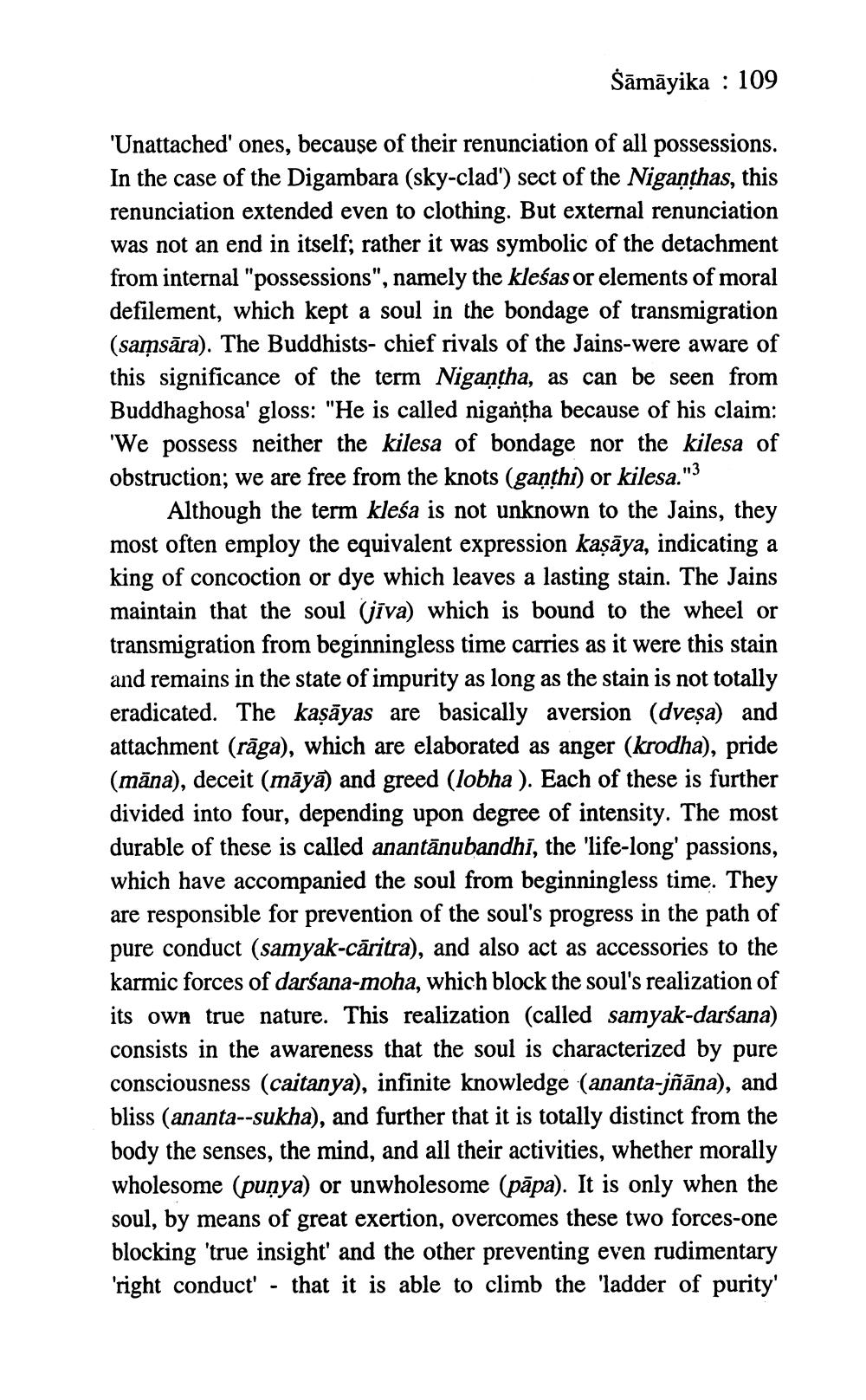________________
Šāmāyika : 109
'Unattached' ones, because of their renunciation of all possessions. In the case of the Digambara (sky-clad') sect of the Nigaộthas, this renunciation extended even to clothing. But external renunciation was not an end in itself; rather it was symbolic of the detachment from internal "possessions", namely the kleśas or elements of moral defilement, which kept a soul in the bondage of transmigration (samsāra). The Buddhists- chief rivals of the Jains-were aware of this significance of the term Nigantha, as can be seen from Buddhaghosa' gloss: "He is called nigantha because of his claim: 'We possess neither the kilesa of bondage nor the kilesa of obstruction; we are free from the knots (ganthi) or kilesa."3
Although the term kleša is not unknown to the Jains, they most often employ the equivalent expression kaşāya, indicating a king of concoction or dye which leaves a lasting stain. The Jains maintain that the soul (jīva) which is bound to the wheel or transmigration from beginningless time carries as it were this stain and remains in the state of impurity as long as the stain is not totally eradicated. The kaşāyas are basically aversion (dveșa) and attachment (rāga), which are elaborated as anger (krodha), pride (māna), deceit (māyā) and greed (lobha ). Each of these is further divided into four, depending upon degree of intensity. The most durable of these is called anantānubandhi, the 'life-long' passions, which have accompanied the soul from beginningless time. They are responsible for prevention of the soul's progress in the path of pure conduct (samyak-cāritra), and also act as accessories to the karmic forces of darśana-moha, which block the soul's realization of its own true nature. This realization (called samyak-darśana) consists in the awareness that the soul is characterized by pure consciousness (caitanya), infinite knowledge (ananta-jñāna), and bliss (ananta--sukha), and further that it is totally distinct from the body the senses, the mind, and all their activities, whether morally wholesome (punya) or unwholesome (pāpa). It is only when the soul, by means of great exertion, overcomes these two forces-one blocking 'true insight' and the other preventing even rudimentary 'right conduct' - that it is able to climb the 'ladder of purity'




